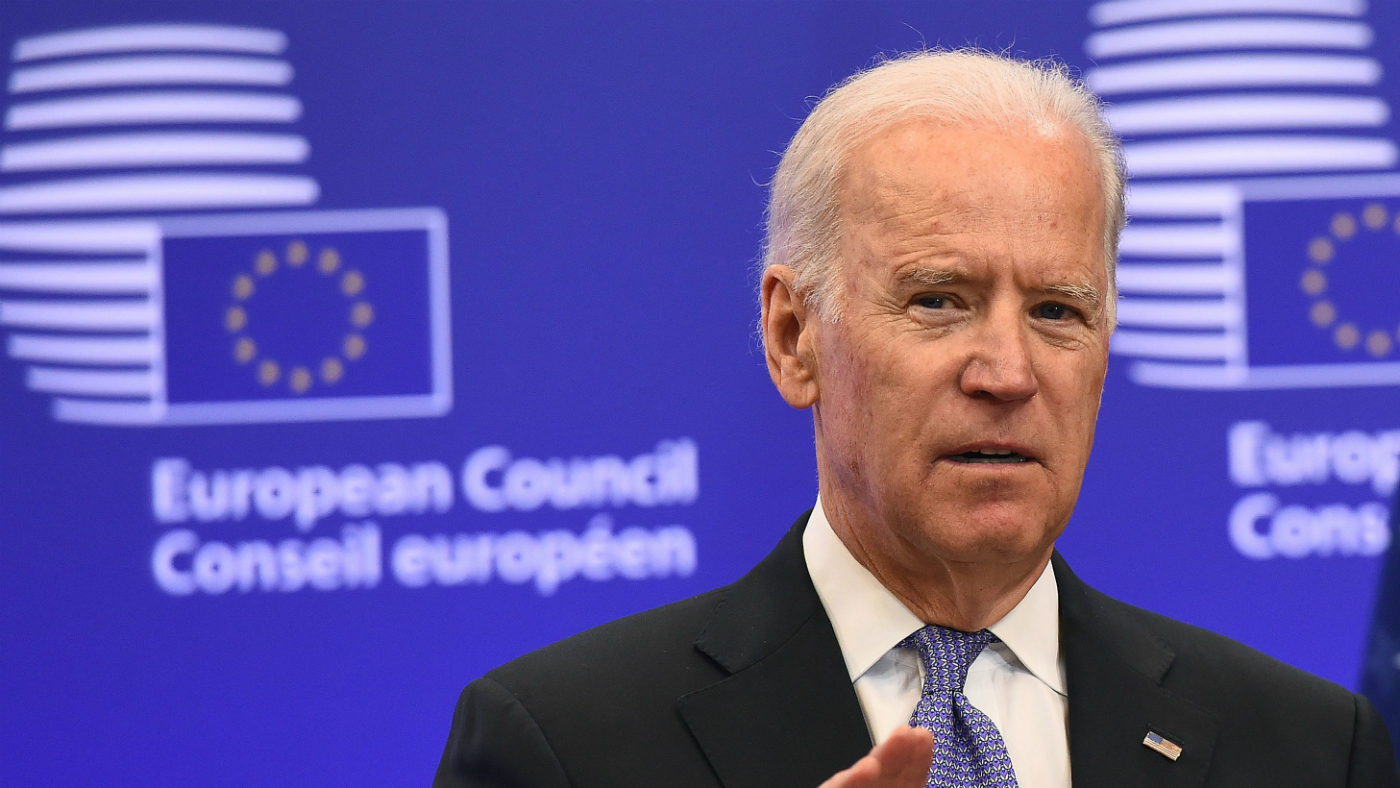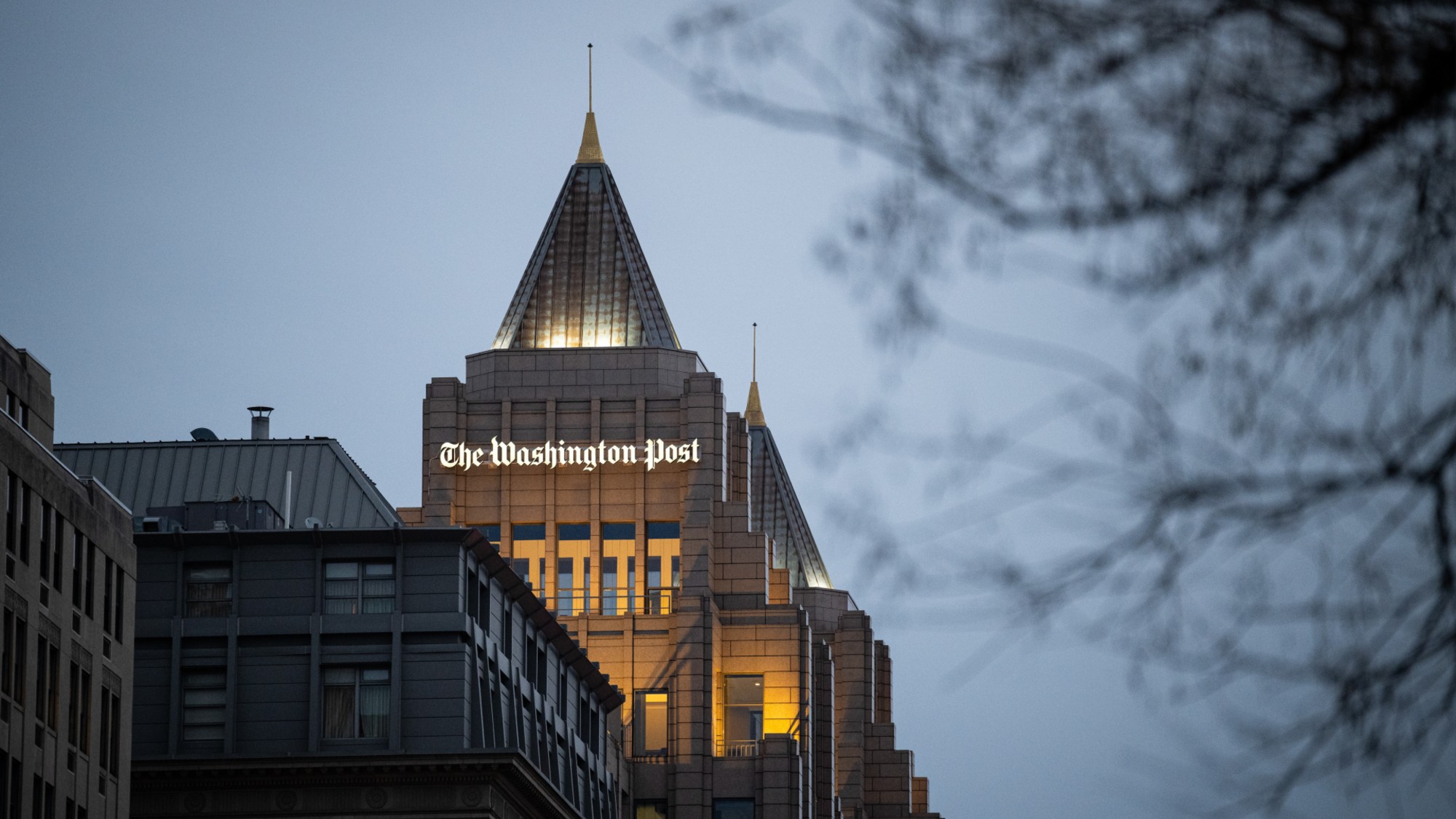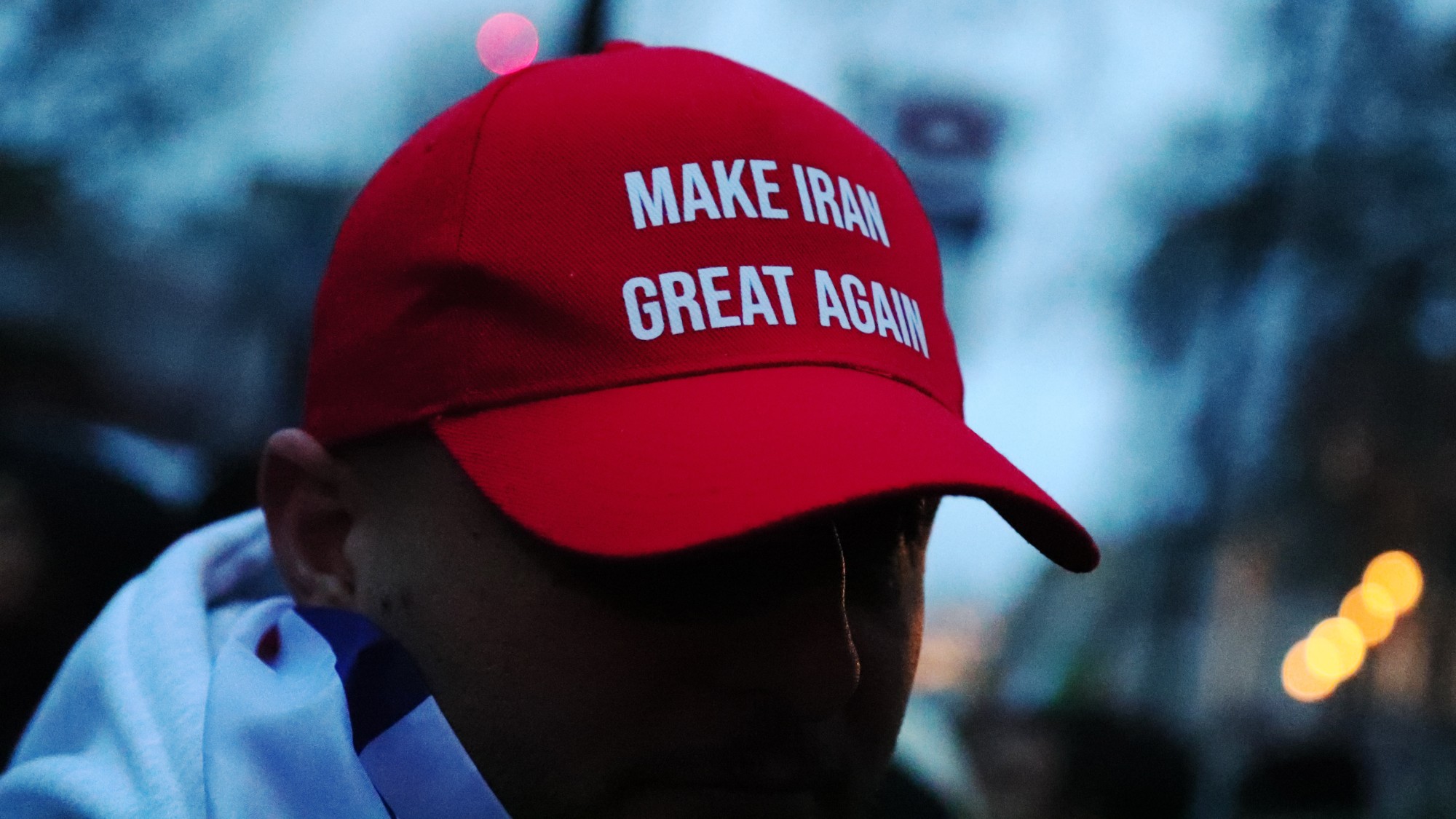US election: what Joe Biden’s presidency means for the EU
President-elect to ramp up relations with EU27 in effort to repair the damage of Trumpism

A free daily email with the biggest news stories of the day – and the best features from TheWeek.com
You are now subscribed
Your newsletter sign-up was successful
The EU has good reason to be hopeful as US president-elect Joe Biden starts to assemble his White House cabinet ahead of his inauguration in January.
The victorious Democrat is expected to hand the role of secretary of state to his long-time aide Antony Blinken, who is known for his pro-European stance. A former deputy secretary of state in Barack Obama’s administration, Blinken has “expressed scepticism about Brexit” and will be tasked with repairing the damage done to US alliances over the past four years, The Times reports.
The tipped appointment has set tongues wagging in both Washington and Brussels about Biden’s plans to rekindle US-EU relations, which came under significant strain during Trump’s tumultuous presidency.
The Week
Escape your echo chamber. Get the facts behind the news, plus analysis from multiple perspectives.

Sign up for The Week's Free Newsletters
From our morning news briefing to a weekly Good News Newsletter, get the best of The Week delivered directly to your inbox.
From our morning news briefing to a weekly Good News Newsletter, get the best of The Week delivered directly to your inbox.
Who will be Biden’s key allies?
The former vice president faces a considerable task in repairing the damage done to international relations by the Donald Trump administration. But as secretary of state, Blinken will lead this push to “rebuild alliances frayed by Trump’s America First approach”, says Politico.
Biden already appears to be making overtures to old friends in Europe, while eschewing uneasy Trump-era alliances with populist strongmen such as Hungary’s Viktor Orban. Following the confirmation of Biden’s election victory earlier this month, the future US leader phoned France’s President Emmanuel Macron, Germany’s Chancellor Angela Merkel, Ireland’s Taoiseach Micheal Martin and - despite talk of strains with the UK - Boris Johnson.
That call list “offered a clear reaffirmation of US-European ties and a signal of a broader return to normalcy in foreign relations ahead”, The New York Times reports.
A free daily email with the biggest news stories of the day – and the best features from TheWeek.com
“Coupled with the conspicuous silence of more authoritarian leaders”, Biden’s choice of phone buddies “provided early hints of a reordering of American allies and antagonists”, the paper continues.
Defence
A total of 21 of the 27 members of the EU are also part of Nato, so many European leaders will be eager to find out Biden’s plans for the mutual defence bloc, which was denounced as “obsolete” by Trump.
Biden has “pledged to restore and expand the 1949 alliance”, and said last year that if he won the White House, one of his first acts in the Oval Office would be call a meeting of Nato leadership to “make clear that we’re back”, Al Jazeera reports.
However, Trump’s pledge to get Nato’s 30 members to pay their “fair share” and spend at least 2% of their GDP on defence by 2024, as per the terms of membership, will “likely continue under Biden”, the broadcaster adds.
Some commentators have suggested that the UK government’s newly announced plans for a £16.5bn defence spending spree is aimed at convincing the next US president of the UK’s importance as a strategic ally.
Biden is also expected to reverse the Trump administration’s plan to withdraw tens of thousands of troops from US bases in Germany.
John Deni, a professor at the US Army War College, told military newspaper Stars and Stripes that “I think that’ll be one of the most significant and quickest national security policy reversals come 20 January 2021” - the date of Biden’s scheduled inauguration.
Climate crisis
Biden has long promised to rejoin the Paris Climate Accord, of which the US became a signatory during his time as VP under Obama, before Trump announced in 2017 that Washington’s membership was being cancelled. Biden could bring the US back into the accord as early as February and will not need Senate approval to rejoin.
The US is the world’s second-largest emitter of greenhouse gases behind China and is “seen as key in the global effort to reduce the effects of climate change”, CNBC reports.
“US leadership and the US-China bilateral agreement to cut CO2 emissions were key to getting the Paris agreement on track,” Cornell University climate scientist Natalie Mahowald, a lead author of the 2018 UN report on climate change, told the broadcaster.
“Continued US involvement and leadership is key to any effort to stop climate change.”
China
Biden is expected to consolidate the current EU-US stance on China by pushing back against Chinese expansion across the globe. In a signal of things to come, the European Commission has “joined Washington in declaring China” a “systemic rival”, despite multiple EU countries having strong trade ties with Beijing, says Politico’s chief Europe correspondent Matthew Karnitschnig.
Biden will “push Berlin and Europe’s other foot-draggers to join a US-led coalition of democracies to try to halt China’s growing influence on the international scene”, Karnitschnig continues.
But the “big ask” will be to persuade countries to stop using Huawei’s 5G gear, which US intelligence claims “creates the foundation for an information superhighway from the Continent to Chinese intelligence”, he adds.
Trade
One of the harder-to-judge issues on Biden’s plate is trade.
He “could open the door to renewing a transatlantic free trade agreement”, after “the last push under Obama died near the finish line amid a backlash on both sides of the Atlantic”, says Karnitschnig. Under Trump, Washington effectively declared Europe an enemy on trade, imposing hefty tariffs on steel and aluminum.
Middle East
Many European governments hope that Biden will “refocus US policy on issues such as Iran and push for respect of normative values” across the Middle East, says the European Council on Foreign Relations (ECFR).
German newspaper Deutsche Welle suggests that the incoming Biden administration is “certain” to want to “reverse President Donald Trump’s destabilising foreign policy manoeuvres” in the region.
Biden plans to revisit the Iran nuclear deal, as well as tackling the issue of Russian engagement in the Middle East. However, the ECFR notes that Biden is “also likely to want to lower the level of US engagement”, in keeping with Obama’s pivot away from the Middle Easy towards a stronger focus on Asia.
If the president-elect attempts such a change of course, it could “create openings and challenges for Europeans” in the Middle East, the think tank concludes.
-
 How to Get to Heaven from Belfast: a ‘highly entertaining ride’
How to Get to Heaven from Belfast: a ‘highly entertaining ride’The Week Recommends Mystery-comedy from the creator of Derry Girls should be ‘your new binge-watch’
-
 The 8 best TV shows of the 1960s
The 8 best TV shows of the 1960sThe standout shows of this decade take viewers from outer space to the Wild West
-
 Microdramas are booming
Microdramas are boomingUnder the radar Scroll to watch a whole movie
-
 How corrupt is the UK?
How corrupt is the UK?The Explainer Decline in standards ‘risks becoming a defining feature of our political culture’ as Britain falls to lowest ever score on global index
-
 ‘The mark’s significance is psychological, if that’
‘The mark’s significance is psychological, if that’Instant Opinion Opinion, comment and editorials of the day
-
 ‘My donation felt like a rejection of the day’s politics’
‘My donation felt like a rejection of the day’s politics’Instant Opinion Opinion, comment and editorials of the day
-
 The ‘mad king’: has Trump finally lost it?
The ‘mad king’: has Trump finally lost it?Talking Point Rambling speeches, wind turbine obsession, and an ‘unhinged’ letter to Norway’s prime minister have caused concern whether the rest of his term is ‘sustainable’
-
 How Iran protest death tolls have been politicised
How Iran protest death tolls have been politicisedIn the Spotlight Regime blames killing of ‘several thousand’ people on foreign actors and uses videos of bodies as ‘psychological warfare’ to scare protesters
-
 ‘It may portend something more ominous’
‘It may portend something more ominous’Instant Opinion Opinion, comment and editorials of the day
-
 The high street: Britain’s next political battleground?
The high street: Britain’s next political battleground?In the Spotlight Mass closure of shops and influx of organised crime are fuelling voter anger, and offer an opening for Reform UK
-
 What are Donald Trump’s options in Iran?
What are Donald Trump’s options in Iran?Today's Big Question Military strikes? Regime overthrow? Cyberattacks? Sanctions? How can the US help Iranian protesters?